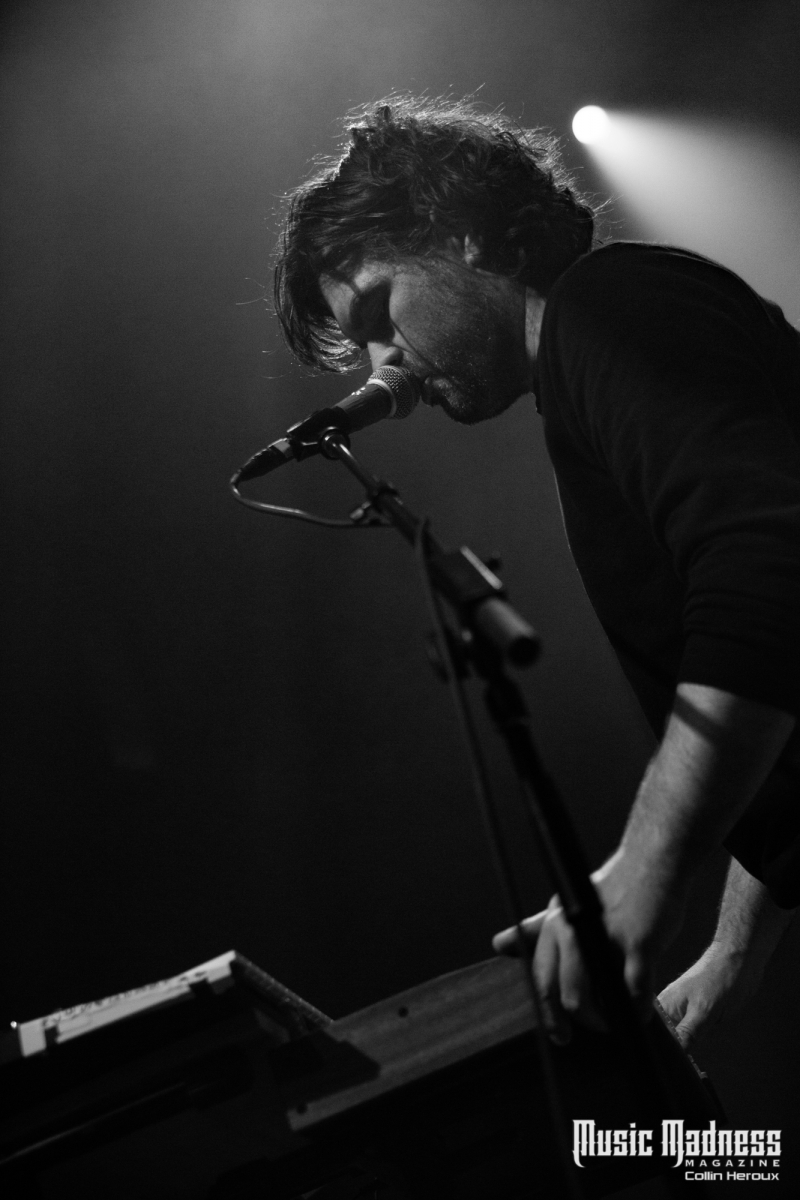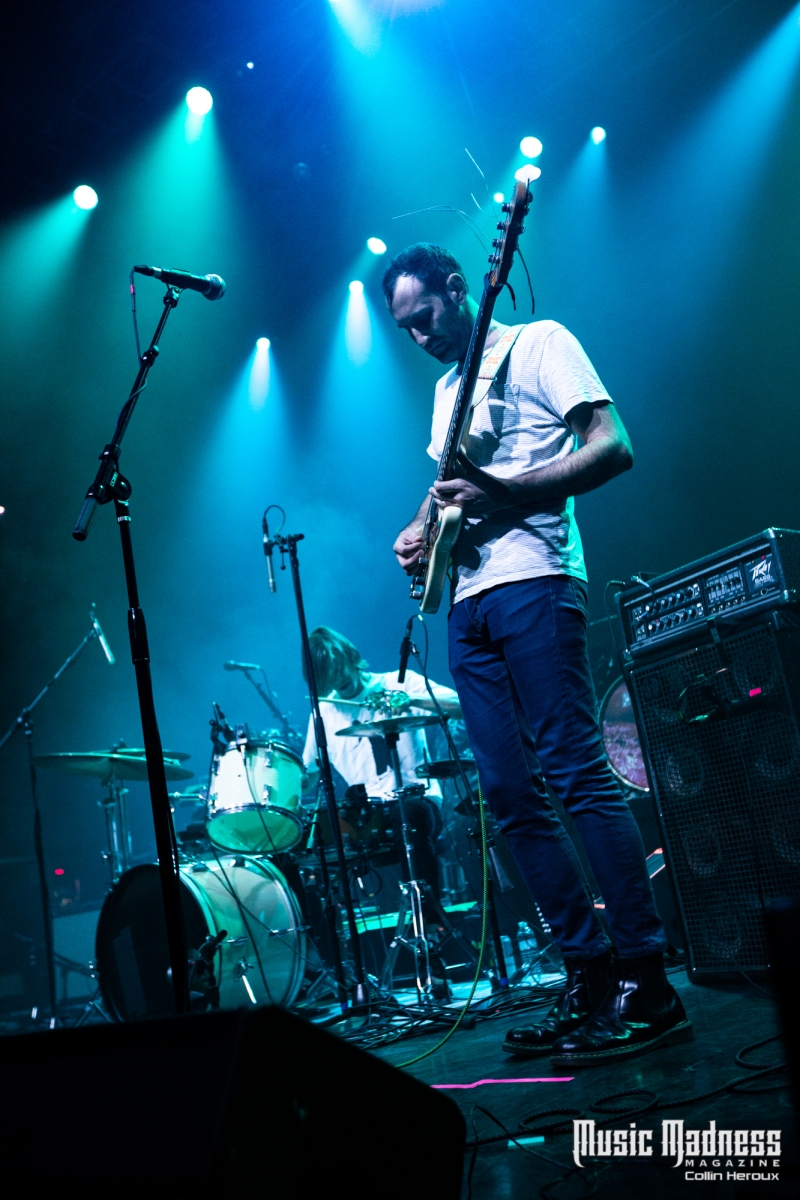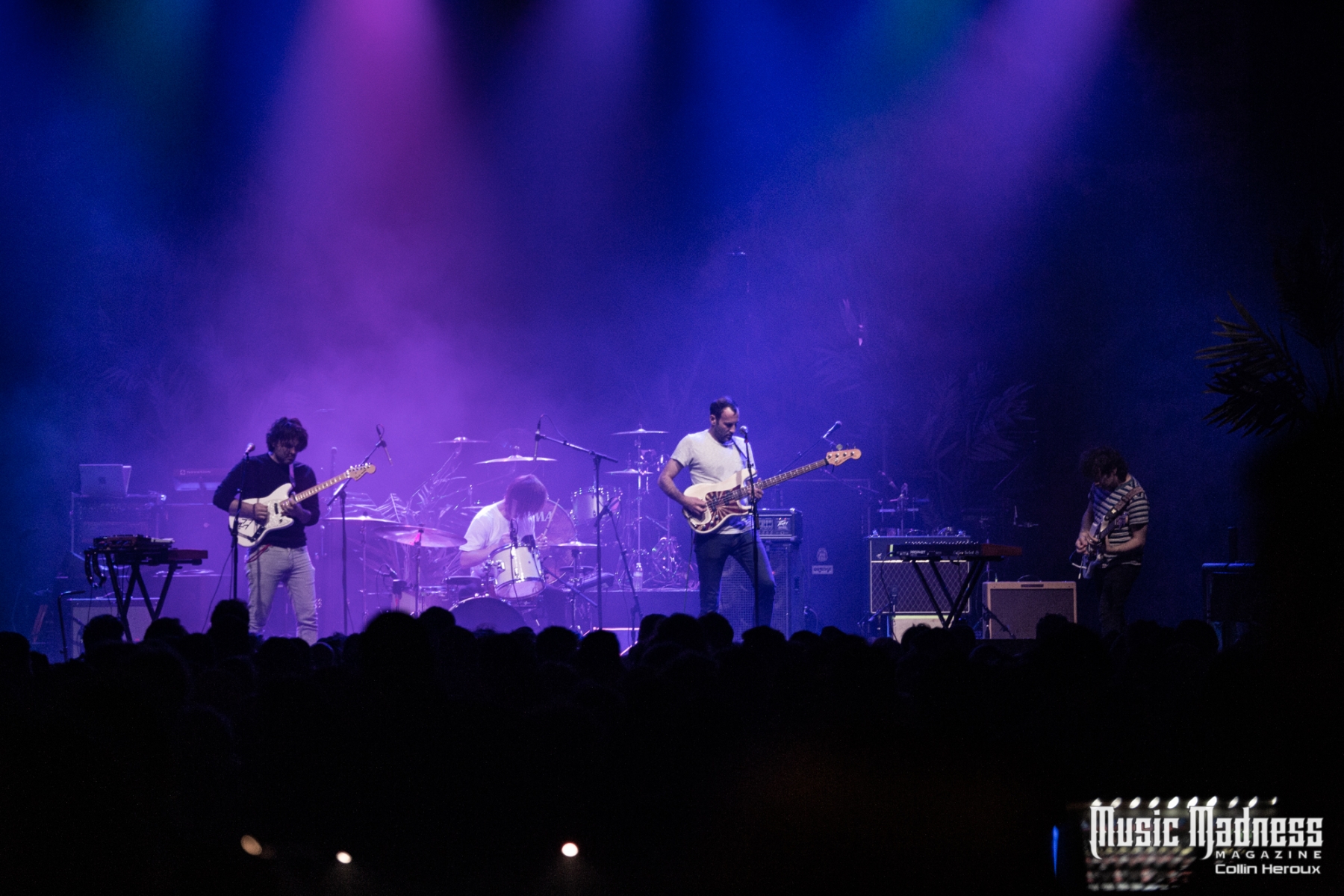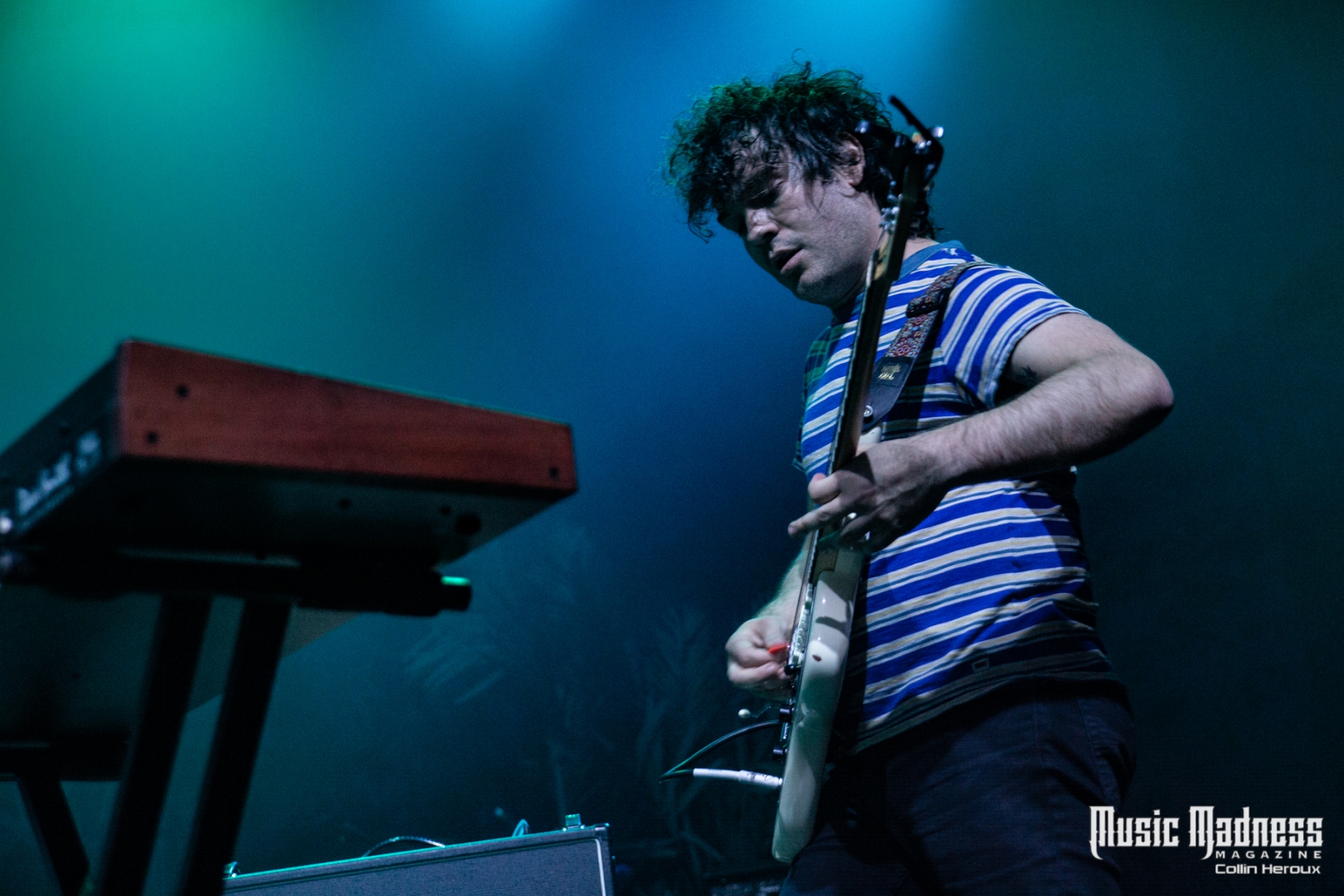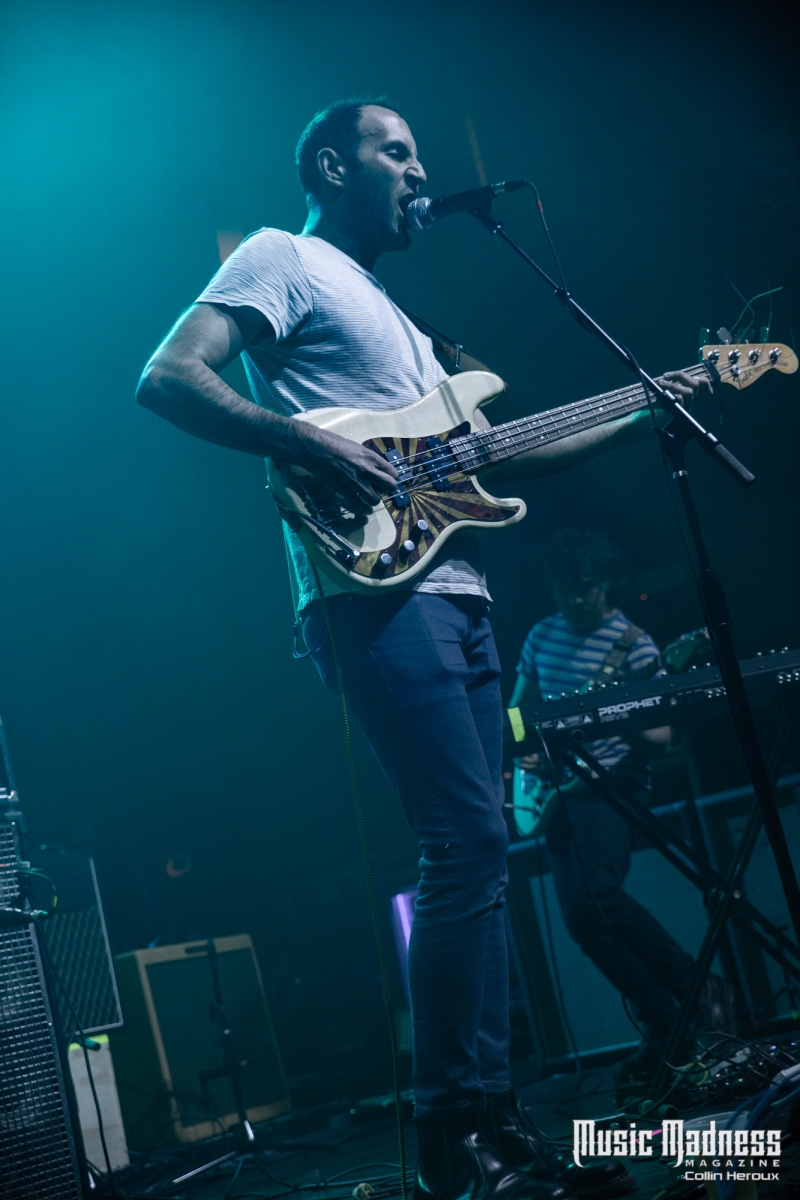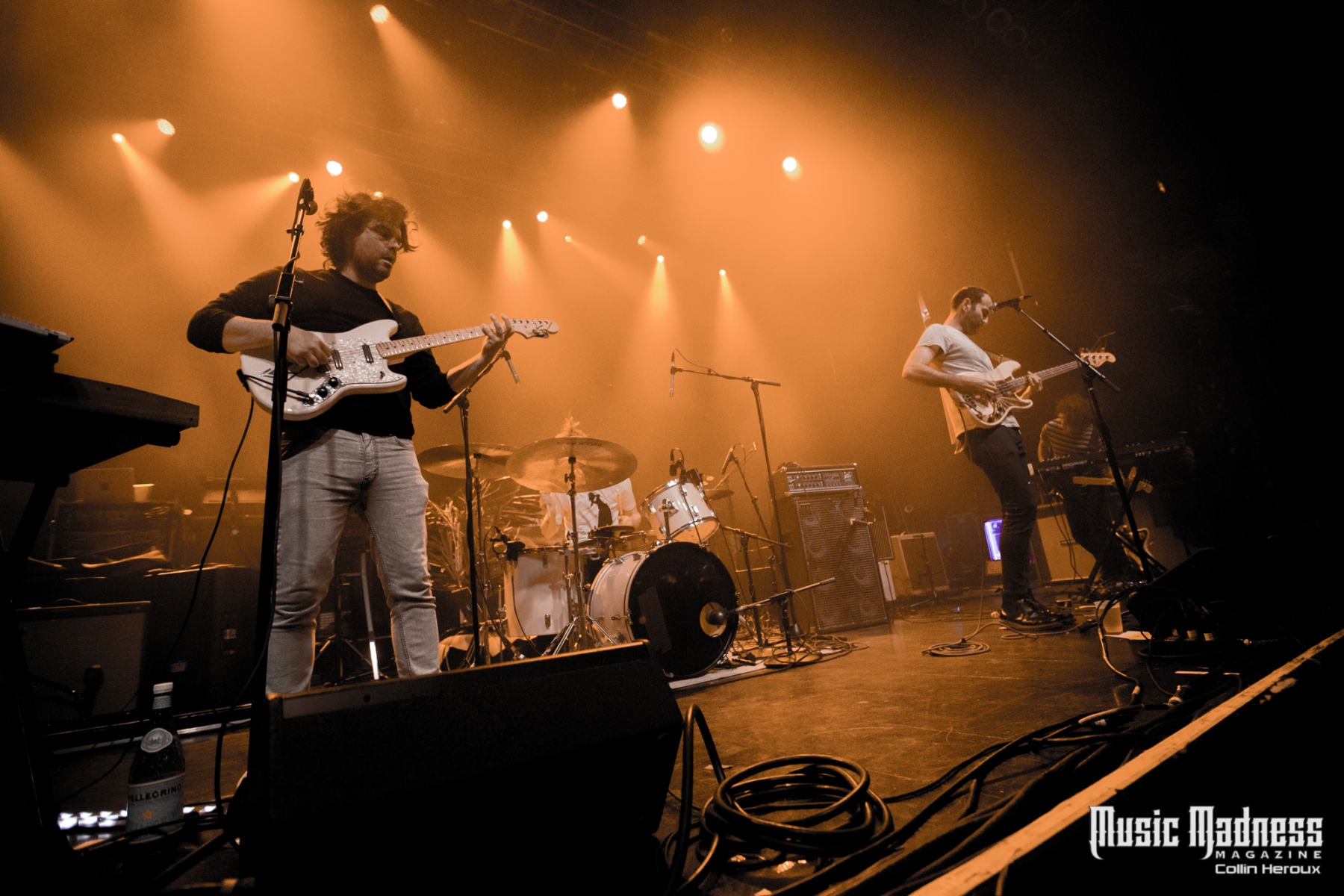
While the typical American cliché is to associate Canada with an excess of politeness, the Canadian post-punk movement would have quite a bit to say to the contrary. Canada in the 2010s has become a powerhouse of punk, ranging from the jagged, artful guitars of bands like Ought, to the punishing riffs of Metz, or the gothic stylings of Preoccupations.
It’s the latter band who takes the stage at the House of Blues on a drizzling spring evening in Boston, the middle act on a bill with Georgia art rockers Omni and UK titans Foals. They’re a perfect fit for the bill, too; much like Foals, who have the distinction of being one of the few bands oft designated “math rock” to break through to true mainstream success, Preoccupations’ music marries the unpredictable time signatures and noisy sounds of modern post-punk with a host of synths that carry the band into a unique position that’s as much New Order as it is Shellac.
Their milieu having generally been Boston’s midsize clubs, it’s unfamiliar but welcome to see Preoccupations on such a big stage in a venue built to house more than two thousand people. The four-piece has existed in its current form since 2013 when it debuted under the name Viet Cong, rising from the ashes of a band called Women and releasing the Cassette EP, which featured a low-fi aesthetic on tracks like the bisected ‘Select Your Drone’, as well as an excellent cover of Bauhaus staple ‘Dark Entries’. Two years later came their first LP, a stunning statement that instantly ensconced them among the great post-punk acts of this generation, not only within Canada but the world over, attracting listeners of bands like Protomartyr, with whom the band has released a joint 7” which sees each band covering the other.
Tasked with opening for Foals, the band elected to sharpen their generally-sprawling setlist to a finely-honed point, opening with a pair of cuts from that first record with ‘Newspaper Spoons’ and ‘Continental Shelf’, featuring the trademark wailing guitars of Scott “Monty” Munro and Daniel Christiansen, anchored as ever by the steely deadpan vocals and stomping bass of frontman Matt Flegel.
After visiting their latest LP, 2018’s New Material, with the frantic rush down of ‘Espionage’, the band opted for ‘Memory’, the standout centerpiece of their excellent second record. The song begins as a characteristically moody and oddly-syncopated Preoccupations tune, but in its back half, following a distorted solo from drummer Mike Wallace, it transforms into something unquestionably beautiful and unique in their catalog. Flegel’s bass morphs to match the characteristic sound of Peter Hook’s time with New Order; he sings in a higher register as Monty and Christiansen weave a heavenly synth soundscape behind him, before those two explode back into the foreground at the song’s climax with a wall of blindingly bright guitars.
To close the night, the band opted for ‘March of Progress’, a tripartite masterpiece which begins with a hypnotic drum rotation by Wallace, leads into a midsection full of guitars distorted to sound much like a Chinese dulcimer, and then erupts into a lightning-fast and catchy finish with cascading synth arpeggios raining down as Flegel’s narrator asks, “What is the difference between love and hate?”, all underneath an ever-changing array of lights from the ceiling of the House of Blues. While there’s plenty to love simply in the band’s instrumentation, even just a glance at the tracklists of their last two records will reveal Flegel’s dedication to looking inward to examine life’s darker passages in the band’s music.
It was ultimately a very unique set from Preoccupations – five songs, Wallace managed to remain fully clothed and not wreck his kit, and the operatic 11-minute ‘Death’ was not played to close the night – but among the faces of the audience you could see that Preoccupations had made an impression in the minds of many Foals faithful, scratching an itch that can only be sated by a pitch-perfect combination of moody post-punk intensity and an appreciation for the sweeping synths of the 80s New Wave.
Review and photos by Collin Heroux



